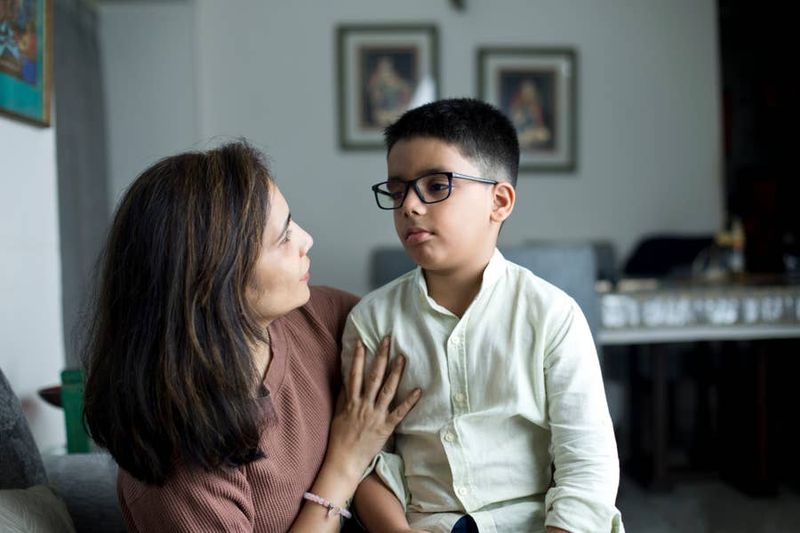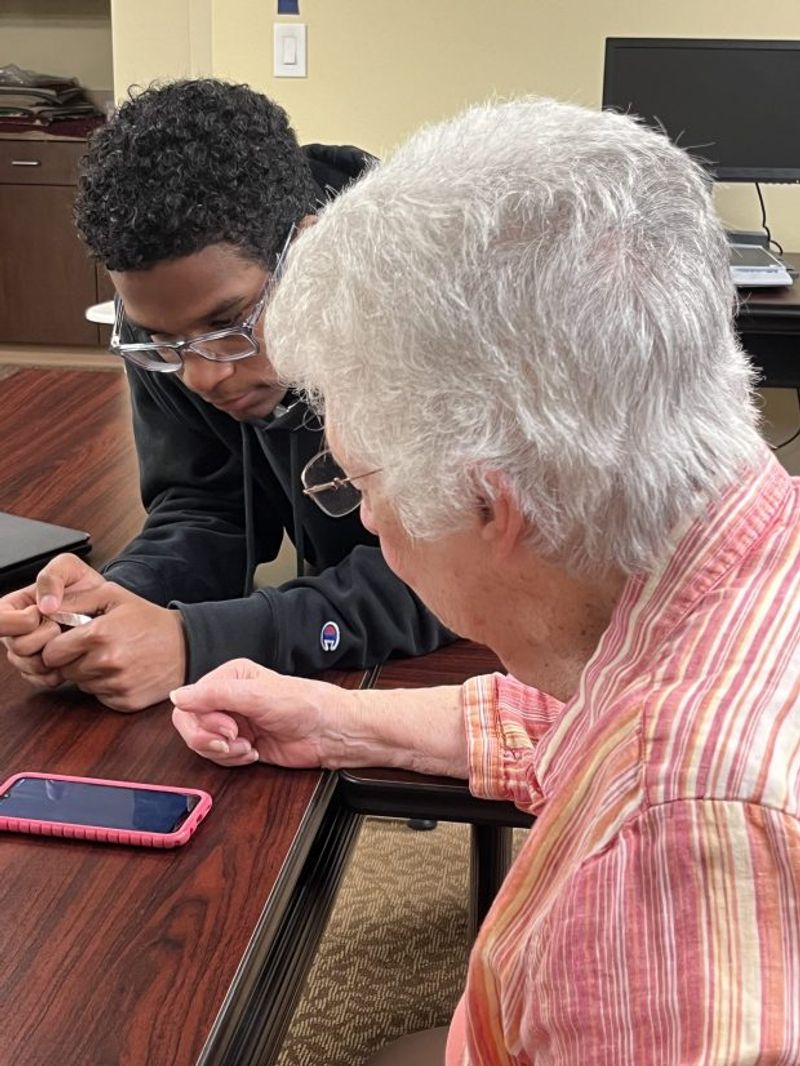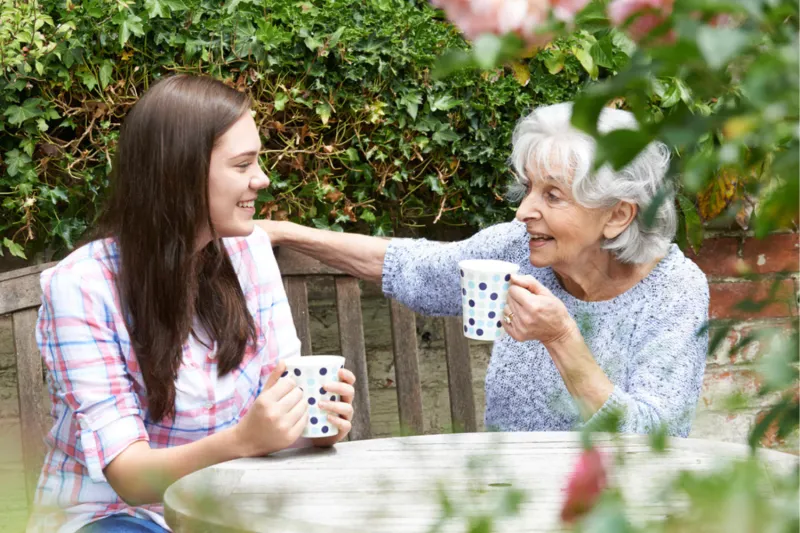Navigating the delicate balance of grandparenting can be challenging. As beloved figures in the family, grandparents wield significant influence. However, certain habits, if left unchecked, can inadvertently cause friction within the family dynamics. Here, we explore 13 habits that grandparents should steer clear of to ensure harmonious relationships with their children and grandchildren. This guide aims to foster understanding and respect, allowing grandparents to enjoy their golden years while maintaining strong family bonds. By avoiding these common pitfalls, grandparents can enhance their roles as cherished mentors and friends to their younger family members.
1. Overstepping Parenting Boundaries

Respecting parental boundaries is essential. When grandparents offer unsolicited advice or undermine the parent’s authority, it can lead to tension. Although intended as guidance, such behavior might be perceived as interference. Recognizing the parents’ role in their children’s lives fosters a cooperative relationship.
Grandparents should aim for supportive gestures rather than authoritative commands. By encouraging open communication, they can provide wisdom without overstepping. A collaborative approach ensures harmony, avoiding conflicts over decision-making.
Ultimately, gentle support and understanding strengthen bonds, allowing grandparents to remain cherished figures without overshadowing the parents.
2. Criticizing Parenting Styles

Criticism of modern parenting styles often breeds resentment. Grandparents might find themselves baffled by contemporary methods, but open-mindedness is crucial. Dismissing new techniques can alienate and discourage parents.
By embracing diverse approaches, grandparents demonstrate flexibility and respect for their children’s choices. Engaging in constructive conversations opens the door to mutual understanding. This adaptability fosters a nurturing environment, encouraging all family members to grow together.
Understanding and accepting differences in parenting ensure that grandparents remain valued allies rather than critical observers, helping to build a supportive family network.
3. Playing Favorites Among Grandchildren

Favoritism can fracture sibling relationships. Grandparents, though well-meaning, may unintentionally show preference, causing jealousy among grandchildren. Recognizing this tendency is the first step towards creating equitable bonds.
Ensuring that each child feels valued and loved, regardless of their achievements, promotes unity. Grandparents should celebrate each grandchild’s unique qualities, fostering an inclusive atmosphere.
By avoiding favoritism and demonstrating fairness, they nurture a strong, cohesive family unit where every grandchild feels special and cherished, contributing to long-lasting familial harmony.
4. Overindulging Grandchildren

While spoiling grandchildren is tempting, excessive indulgence can undermine parental efforts. Showering children with gifts and leniency may lead to entitlement.
Finding a balance is vital. Encouraging responsibility and moderation ensures children appreciate rewards without becoming dependent on constant indulgence. Respecting parents’ rules strengthens family unity.
Grandparents should aim to complement rather than counteract parenting principles. By reinforcing positive behaviors, they contribute to well-rounded, grateful grandchildren who understand the value of boundaries and appreciation.
5. Ignoring Technological Advancements

Technology can be intimidating, yet staying informed bridges generational gaps. When grandparents dismiss technology, they miss opportunities to connect with grandchildren in their world.
Embracing technology with curiosity fosters stronger relationships. Learning from younger family members about devices and apps creates shared experiences, enhancing communication.
Through embracing rather than ignoring technology, grandparents demonstrate adaptability, making them relatable and approachable figures, eager to engage with evolving times, and cultivating mutual respect and understanding with their tech-savvy grandchildren.
6. Neglecting Self-Care

Many grandparents prioritize family over personal well-being, yet self-care is essential. Neglecting health hinders the ability to be active participants in grandchildren’s lives.
Engaging in regular exercise, maintaining health checkups, and pursuing hobbies contribute to longevity and vitality. By modeling self-care, grandparents inspire younger generations to value health and balance.
Prioritizing well-being ensures they remain vibrant, involved figures, capable of creating cherished memories with family for years to come, highlighting the importance of a balanced lifestyle.
7. Avoiding Family Conflicts

Avoiding conflict may seem peaceful, yet unresolved issues can fester. Addressing disputes constructively fosters healthier relationships.
Grandparents should engage in open dialogues, mediating tensions with empathy and neutrality. Promoting compromise and understanding builds stronger familial bonds.
By tackling conflicts head-on with wisdom and patience, grandparents reinforce their roles as peacemakers, ensuring a harmonious family environment that values communication and respect, laying the groundwork for lasting unity.
8. Being Overprotective

Overprotectiveness may stem from love, yet it can stifle independence. Allowing grandchildren to explore fosters resilience and confidence.
Encouraging them to take safe risks and learn from mistakes imparts valuable life skills. Balancing protection with freedom nurtures self-reliant, adventurous individuals.
Grandparents should trust in their grandchildren’s abilities, providing guidance without hovering. This approach strengthens trust and prepares young ones to face the world with courage and curiosity.
9. Living in the Past

Nostalgia is comforting, yet dwelling on the past may hinder present relationships. Sharing memories is valuable, but living in the moment is crucial for bonding.
Grandparents should blend storytelling with active participation in current family life. Embracing new experiences alongside cherished traditions keeps connections vibrant.
By balancing reminiscence with engagement in the present, they remain relevant and influential figures, bridging generations through shared history and contemporary involvement.
10. Imposing Personal Beliefs

Sharing beliefs enriches family heritage, but imposing them stifles individuality. Grandparents should embrace diverse perspectives, fostering open-mindedness and respect.
Encouraging dialogue rather than dictation allows family members to explore their identities. This approach nurtures independent thinkers who appreciate family wisdom while forging their paths.
By welcoming differing views, grandparents maintain supportive, enriching relationships, empowering younger generations to grow with confidence and understanding.
11. Neglecting Spousal Relationship

Focusing solely on grandchildren can strain spousal bonds. Maintaining a loving partnership enriches familial stability.
Grandparents should prioritize time together, celebrating their relationship as a foundation for family unity. Shared activities and mutual appreciation reinforce bonds.
By nurturing their marriage, they model enduring love and partnership, inspiring younger generations and ensuring a harmonious family environment that thrives on love and respect.
12. Resisting Change

Change is inevitable, yet resistance limits growth. Embracing change with grace allows grandparents to evolve alongside their families.
Adapting to new circumstances and ideas fosters resilience and relevance. Remaining open to innovation strengthens family ties, encouraging mutual learning and respect.
By welcoming change, they set an example of adaptability and wisdom, ensuring their continued influence as trusted guides in an ever-evolving family landscape.
13. Forgetting to Listen

Listening bridges generational divides. Grandparents, eager to share wisdom, often overshadow younger voices. Prioritizing attentive listening fosters mutual respect and understanding.
Encouraging grandchildren to express themselves without interruption boosts their confidence. This empathetic approach builds rapport and trust, fostering stronger connections.
By valuing listening, grandparents enhance communication, ensuring their role as supportive, understanding figures who are cherished and revered by their family.

